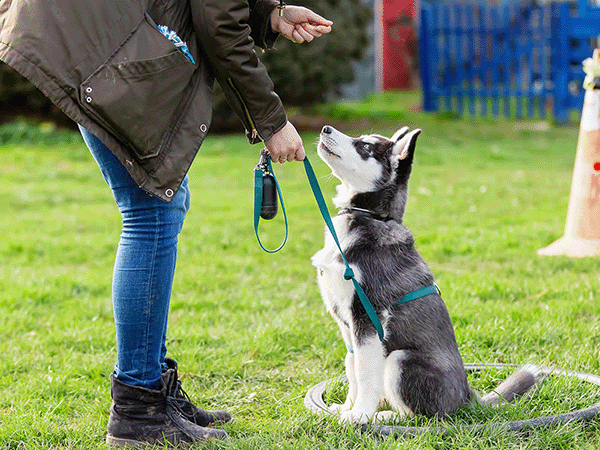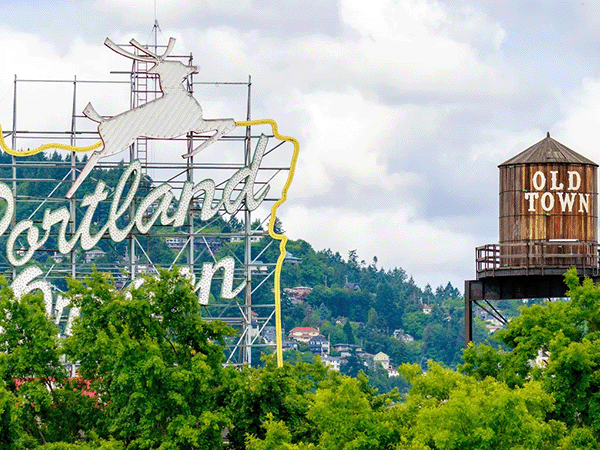Bee Stings on Dogs: 5 Things Every Owner Must Know

Bee stings are a common injury in active dogs, especially curious puppies and adolescents who might try to chase after buzzing insects. (These furry friends often have a habit of chasing other wild animals, too).
Thankfully, most dogs who suffer a bee or wasp sting are just fine after an initial period of discomfort. Some bee sting incidents do require immediate medical attention, though. If that's the case, you don't want to wait to get your pup to the vet!
Here’s all the buzz about bee stings in dogs. We cover:
- How dogs get stung by bees
- Risks and complications of bee stings in dogs
- What to do if your dog gets stung by a pee
- How to prevent bee stings in the first place
- Resources to learn more about safely adventuring with your dog
1) How do dogs get stung by bees?
Bees usually sting our pets when dogs accidentally disturb an individual insect or its larger nest. This is particularly likely if the hive is located in the ground. Nests can be hard to see from far away!
Most dog bee stings are a result of:
General curiosity
Many dogs—especially juveniles like young puppies—have a curious nature. This openness to experience is one of the things our human ancestors loved best about our early canine companions. It can also be the source of a lot of trouble in our modern world, though.
Dogs might investigate bees without realizing the flying insects can cause pain. When your pup gets too close to a bee, they might feel threatened and respond with a sting.
Focused chasing of large insects
Some dogs have a playful or prey instinct to chase insects, including bees. This can be a recipe for a sting.
Accidental disturbance of a bee hive
Dogs may come across bee nests or hives while exploring outdoor areas. If your dog disturbs a hive, the bees may swarm in defense.

2) What are the risks of bee stings in dogs?
Bee stings in dogs vary in severity. Most bees cause only mild reactions. People and pets get stung everyday without lasting harm! But some dogs may experience more severe consequences leading to a medical emergency.
Factors like the number of stings, the location of the stings, your dog's size, and whether they have any allergies to bee venom can make the difference between a simple "oops" moment and a serious medical issue.
Risks and side effects of your dog getting stung by a bee include:
Localized pain and mild swelling
Most dogs will experience localized pain, redness, and swelling at the site of the bee sting. This is a common reaction. It's usually not a cause for concern!
Allergic reactions
Some dogs can have allergic reactions to bee stings. Mild allergic reactions may include more pronounced swelling around the sting site, hives, and itching.
In severe cases, a dog may experience an anaphylactic reaction (often called anaphylactic shock) which is a potentially life-threatening emergency situation. Anaphylaxis can cause difficulty breathing, facial swelling, vomiting, diarrhea, weakness, collapse, and shock.
Secondary infections
In some cases, the bee sting site can become infected. This might be more likely if your dog scratches or licks the area excessively.
Stings in sensitive areas are more risky
Bee stings in sensitive areas such as the mouth, throat, or eyes can cause additional complications, like swelling that interferes with breathing. These stings also cause more severe discomfort that can limit your dog's typical activities.
Multiple stings create a greater risk of complications
If your dog is stung multiple times, the increased volume of venom increases the risk of a more severe reaction. These complications are most serious in smaller dogs and those with underlying health issues.
Bee stings can make dogs fearful of the environment where they were stung
Dogs learn by association. (We cover their cognition and more in the dog training articles of our blog.) Because of this, some sensitive dogs might become fearful of things they associate with their bee sting—like a specific corner of your yard, a certain toy, or even a nearby smell.
If your pup has recovered physically from being stung but seems to be acting “off” afterward—perhaps they show fearful body language, refuse to play when they usually love games, or otherwise give you cause for concern—it’s a great idea to get in touch with a certified force free trainer. A dog professional can work out a plan to help them feel better! Training might include counter conditioning and desensitization. It should always happen at your dog’s pace.

3) What to do if your dog gets stung by a bee
First things first: Get your dog—and yourself—out of the vicinity. While honeybees leave their stingers behind and eventually die, most other bees (including bumblebees, hornets, yellow jackets, and their cousin the wasp) can sting multiple times.
Remove the stinger
If your dog gets stung by a bee, you need to remove the stinger as soon as possible. This helps minimize the amount of venom injected into the skin.
Follow these steps to safely remove a bee stinger from your dog.
- Locate the stinger: Look for the stinger on your dog's skin. It appears as a tiny black or dark brown protrusion at the sting site.
- Use a credit card or other blunt object: Avoid using your fingers to prevent squeezing more venom into the skin. Instead, use a credit card, a blunt knife, or the edge of a plastic ID card to gently scrape the stinger out.
- Scrape the stinger: Hold the card or blunt object at an angle and gently scrape it across the skin, starting from the base of the stinger and moving outward. Do this in a swift and smooth motion to remove the stinger.
- Check for residue: After removing the stinger, check if any venom sac remains on the skin. If you see a small sac, also gently scrape it off with the card.
Calm the surrounding skin
Once the stinger is removed, clean your dog's bee sting area with mild soap and water to prevent infection. Baking soda pastes and oatmeal baths are popular options to soothe your pup’s irritated skin if they’re having a hard time.
Try to reduce swelling
You might consider applying a cold compress or ice pack wrapped in a cloth to the affected area to help reduce swelling. Important note: Do not place ice directly on your dog’s skin! This can cause frost bite (not to mention will feel uncomfortable or even painful for them).
Reach out to your veterinarian about antihistamine medication
If your dog has a history of mild allergic reactions to bee stings—or if you notice extreme swelling or hives—you may consider giving them a veterinarian-approved antihistamine.
Always consult your vet before administering any medication to your dog!
Watch your dog closely for any allergic reactions
Keep an eye out for signs of an allergic reaction. These might include:
- difficulty breathing
- severe swelling
- vomiting
- diarrhea
- weakness
- collapse
- and any other out-of-the-norm behavior that comes on suddenly
If you observe any of these symptoms, seek immediate veterinary attention!
Comfort your dog!
If your dog gets stung by a bee, chances are you both feel pretty shaken up afterward.
Don’t hesitate to comfort your dog. It’s important your canine companion sees you as a safe, secure attachment figure who’s there for them in times of need! You might have heard that you can "reinforce their fear"—but this is a myth. Fear is an emotion, not a behavior.
Just be sure to speak calmly, move predictably, and avoid revving your pup up further. Your own demeanor can make a big difference.
4) How can you prevent future bee stings moving forward?
Monitor your dog when out in nature
To reduce the risk of bee stings, be cautious during outdoor activities—especially in areas with a lot of bee activity. Avoid areas with known beehives. Stay away from flowering plants where bees may be feeding.
Keep your dog on a leash when required
Keep your dog on a leash whenever trails, parks, or other natural areas require it. When in doubt about whether or not you'll encounter in-ground beehives? Leashing your pup can help ensure they stay on the beaten path—and away from nests.
Teach a solid “leave it” cue
A strong “leave it” cue can come in handy if your pup likes to chase insects. If they start to fixate on a bee, you’ll be able to let them know to focus on you instead to avoid getting stung.
5) Resources for safe dog-friendly adventures
Learn more about keeping your pup healthy on all your outings in the below articles!
- Dog Exercise Calculator
- Comprehensive Guide to Canine Enrichment
- Dealing with Ticks on Dogs
- Preventing and Treating Heat Stroke in Dogs
- Guide to Off-Leash Training
Review of this Article
There is so much misinformation out there, and we want to make sure we only provide the highest quality information to our community. We have all of our articles reviewed by qualified, positive-only trainers or veterinarians.
This is the professional that reviewed this article:
Amber Holly, BS, RVT, LVT
Most recent articles
Related articles
Top dog guides per area
Dog training guides

Dog Food Aggression: Why You Shouldn't Punish It
Does your dog ever growl when you walk by their food dish? Maybe they get possessive of treats, carrying them far away and giving you side-eye when you start to approach — or snarling at your other pets or children if they get too close.

Best Dog Fields in the US: 25+ Wide-Open Spaces for Your Pup to Run Free
The best dog fields in the US offer something that traditional enclosed parks simply can't match: acres of open space where your pup can truly stretch their legs and run at full speed. From Colorado's 470-acre prairie meadows to Tennessee's award-winning "Outback," these wide-open spaces allow dogs to roam, explore, and exercise naturally while engaging instincts that cramped urban parks suppress.

The Ultimate Guide to Scent Training for Dogs
Your dog's nose is an amazing tool. Did you know they have 40 times the olfactory receptors than humans? Scent training for dogs taps into this superpower, turning everyday moments into exciting sniff-fests. It's enriching for all types of dogs – reactive, shy, or simply adventurous. Ready to explore the world of scent work for dogs? Let's get started.

Service Dog Training Costs: DIY vs. Pro
More than 80 million Americans rely on their service dogs to help them navigate the world. Task-trained assistance animals perform a huge range of life-changing—in many cases, life-saving—services: These dogs act as eyes for visually impaired handlers, provide mobility support, alert to seizures and blood sugar crashes, interrupt anxiety attacks, remind their people to take medications, and so much more.

How to Deal With Puppy Potty Training Regression
You thought those dreaded middle-of-the-night potty breaks were over. You were finally free from cleaning up puppy puddles. Then, suddenly, your six-month-old who's been accident-free for weeks starts peeing on your rug again.

Dirty Dog Syndrome: Causes, Solutions, and Prevention
It's a cringe-worthy moment every dog owner dreads: your furry friend chowing down on something truly disgusting. If your dog has a penchant for poop, you're dealing with coprophagia. It's more common than you think, and thankfully, often manageable. This article explores the reasons behind dirty dog syndrome, from instinct to learned behavior. We'll also give you practical tips to help break this unpleasant habit.

How to Train Your Rescue Dog: A Complete Guide
* All Sniffspot articles are reviewed by certified trainers for quality, please see bottom of article for details *
Dog enrichment guides

Best Dog Water Parks in the US: 15+ Amazing Splash Destinations for Your Pup
Do you have a water-loving dog looking to burn some energy? There are countless dog parks to visit throughout our country — but some of them become far too hot in the midday sun to be safe for your pets to play. That’s why we’ve put together a list of some of the best dog water parks throughout the United States! At these locations, your pup can frolic, splash, and swim to their heart’s content.

Best Dog Fields in the US: 25+ Wide-Open Spaces for Your Pup to Run Free
The best dog fields in the US offer something that traditional enclosed parks simply can't match: acres of open space where your pup can truly stretch their legs and run at full speed. From Colorado's 470-acre prairie meadows to Tennessee's award-winning "Outback," these wide-open spaces allow dogs to roam, explore, and exercise naturally while engaging instincts that cramped urban parks suppress.

Best Toys for Herding Dogs: Keeping Your Pup Happy & Engaged
Herding dogs are amazing, intelligent companions. But that also means they need more than just a simple game of fetch. Finding the right toys for herding dogs is key to keeping them happy and stimulated. This article explores some of the best toys for herding dogs, including options specifically for breeds like Border Collies and Australian Shepherds. We'll help you discover the perfect herding toys for dogs to tap into their natural instincts and keep them entertained for hours.

Tough Dog Toys for Aggressive Chewers: A Practical Guide
Does your dog destroy every toy you give them? Is your house littered with the remnants of plush toys? Are you tired of wasting money on "indestructible" dog toys for aggressive chewers that don't last? Then this post is for you. We'll cover everything you need to know about finding the best dog toys for aggressive chewers, so you can finally give your pup something safe, durable, and fun.

Daily Exercise Calculator: How Much Exercise Does Your Dog Need?
Everyone knows dogs need exercise, but how much is enough? Walks are great, but creating a truly balanced fitness plan means understanding your dog's specific needs. This post helps you develop a daily exercise calculator for your dog, considering breed, age, and lifestyle. We'll cover fun activities, understanding exercise intensity, and recognizing when your pup has had enough. Let's create a plan that keeps your dog happy and healthy!

Complete Guide To Herding With Dogs
* All Sniffspot articles are reviewed by certified trainers for quality, please see bottom of article for details *

Dog Enrichment Activities: The Ultimate Guide
Ever feel like your dog is restless or bored? They may be getting enough exercise, but still need more. That's where enrichment activities for dogs come in. Giving your dog opportunities to sniff, explore, and problem-solve can make a world of difference. Whether you have a puppy, adult, or senior dog, enriching their environment is key for their well-being. Let's explore how to add cognitive enrichment for dogs, even tailoring activities to your dog's breed with breed specific enrichment and fun enrichment games for dogs.
Dog reactivity guides

Rottweiler Aggression: Truth vs. Myth
Many dogs have gotten a bad reputation over the years for being "dangerous breeds." Rottweilers are among them. Like pit bulls and other large, blocky-headed types of dogs, these powerful and beautiful animals are often assumed to be aggressive.

Best Dog Fields in the US: 25+ Wide-Open Spaces for Your Pup to Run Free
The best dog fields in the US offer something that traditional enclosed parks simply can't match: acres of open space where your pup can truly stretch their legs and run at full speed. From Colorado's 470-acre prairie meadows to Tennessee's award-winning "Outback," these wide-open spaces allow dogs to roam, explore, and exercise naturally while engaging instincts that cramped urban parks suppress.

What Is a Reactive Dog? A Practical Guide for Owners
Does your dog suddenly transform into a barking, lunging Tasmanian devil on walks? It's stressful for both of you. If this sounds familiar, you might have a reactive dog. Understanding what is a reactive dog is the first step to calmer walks. We'll explore the common triggers and give you actionable strategies to manage and modify this behavior. Let's turn those stressful walks into enjoyable outings.

How to Socialize a Reactive Dog: A Step-by-Step Guide
Does your dog display reactivity to other pets or people—barking, lunging, or growling when they see their triggers? Whether they're a rescue still settling in, missed critical socialization as a puppy, or had a negative experience, you're not alone. Reactivity is one of the most common dog behavior concerns, and with the right approach, you can help your reactive dog feel calmer and more confident around their triggers.

What Is a Reactive Dog? A Complete Guide
Is your dog overly excited or fearful around other dogs? Do they bark, lunge, or whine? You might have a reactive dog. Many dog owners face this challenge. Understanding what a reactive dog is is the first step to helping them. This guide explores the common causes of dog reactivity, explains what makes a dog reactive, and offers practical tips and resources. Let's work together to build a stronger bond with your dog and enjoy stress-free walks.

9 Best Online Communities for Reactive Dog Parents
Does your dog's reactivity make walks stressful? You're not alone. Many dog owners face similar challenges. This guide offers practical advice and support for managing reactivity, including finding the best online dog training for reactive dogs. We'll connect you with reactive dog support groups, share training tips, and explore resources like the best dog training app for reactive dogs. Let's build a stronger bond with your dog, together.
* All Sniffspot articles are reviewed by certified trainers for quality, please see bottom of article for details *
How To Groom a Reactive Dog
* All Sniffspot articles are reviewed by certified trainers for quality, please see bottom of article for details *
Sniffspot community guides

The State of Public Dog Parks Across the United States
From 2009 to 2020, there was a 40 percent increase in the development of public dog parks. Designated spots for canine exercise have become commonplace in every major city in North America — many pet owners won’t even consider renting an apartment that doesn’t have its own fenced-in pet area for their canine companions.

Best Dog Fields in the US: 25+ Wide-Open Spaces for Your Pup to Run Free
The best dog fields in the US offer something that traditional enclosed parks simply can't match: acres of open space where your pup can truly stretch their legs and run at full speed. From Colorado's 470-acre prairie meadows to Tennessee's award-winning "Outback," these wide-open spaces allow dogs to roam, explore, and exercise naturally while engaging instincts that cramped urban parks suppress.

How This Family is Affording Their Dream Property Through Renting it Hourly to Dogs
Thousand Oaks, California has been a safe haven for Sniffspot host, Jen, since childhood. Having grown up in busy Santa Barbara, Jen, an introvert from an early age, would seek out solitude and serenity away from tourists attractions and droves of people visiting from elsewhere. “My grandparents own 60 acres about a 30 minute drive from here, and I grew up spending every summer and every holiday visiting them on the ranch,” Jen explained. “In Santa Barbara, we wouldn't go to the beach on the weekend because that's where everybody was, so you'd find places off the beaten path where the tourists weren't. For me, the ranch was just my happy place.”

Host Tips: Ellen K. What Makes Sniffspot Successful for Me
Ellen is the host of Country Pasture Getaway, one of Sniffspot's most popular sniff spots. She has taken the time to write up the lessons she has learned about how to be a great sniff spot host.

How this Oregon Farmer is Making a Business From Renting Her Land to Dogs
Just 20 minutes outside of the busy city of Portland, Oregon, and settled right on the banks of the Columbia River, you’ll find what countless visitors have flocked to the area in search of – mountain views, crisp, clean air, and running water for miles. What you might not expect to find, however, is a hidden oasis designed just for dogs and their people, owned and operated by a farming couple and enjoyed by visitors on two legs, and four.

Host Tips: Fran T. Providing Great Guest Service at our Spot
Fran is the host of Ranch Setting, one of Sniffspot's most popular spots. She has taken the time to write up the lessons she has learned about how to be a great Sniffspot host.

How Sniffspot Helped a Nervous Rescue Work Through His Fears and Change His Family’s Life
This is the story of a family and dog rescuing each other.
Top dog trainers in the US

The Best Dog Trainers in the United States of 2026
This is a list of the top dog trainers in the United States, based on votes from the Sniffspot community and the general public.
The Best Dog Trainers in Seattle, WA of 2026
This is a list of the top dog trainers in Seattle, WA, based on votes from the Sniffspot community and the general public.
The Best Dog Trainers in Portland, OR of 2026
This is a list of the top dog trainers in Portland, OR, based on votes from the Sniffspot community and the general public.
The Best Dog Trainers in Los Angeles, CA of 2026
This is a list of the top dog trainers in Los Angeles, CA, based on votes from the Sniffspot community and the general public.
The Best Dog Trainers in New York, NY of 2026
This is a list of the top dog trainers in New York, NY, based on votes from the Sniffspot community and the general public.
City dog parks guides

Top 10 Indoor Dog Parks: A US Guide
Looking for a space to play with your dog no matter what the weather’s like outside? Look no further than our list of the best indoor dog parks in the United States! These climate-controlled spaces are growing in popularity as pet ownership increases throughout the country. As a bonus, many of them also offer dog training, boarding, grooming, or daycare services on the premises.

Best Dog Fields in the US: 25+ Wide-Open Spaces for Your Pup to Run Free
The best dog fields in the US offer something that traditional enclosed parks simply can't match: acres of open space where your pup can truly stretch their legs and run at full speed. From Colorado's 470-acre prairie meadows to Tennessee's award-winning "Outback," these wide-open spaces allow dogs to roam, explore, and exercise naturally while engaging instincts that cramped urban parks suppress.

Best Dog Parks in the US: Ultimate Guide to Public & Private Off-Leash Adventures
Is your pup giving you those pleading "let me run free" eyes? Whether you're a new dog parent or a seasoned pro looking for fresh adventures, finding the perfect off-leash paradise for your furry friend can feel ruff! From sun-soaked California beaches where your water-loving lab can make a splash to mountain trails in Vermont where your adventure buddy can chase every scent, we've sniffed out the 15 best dog parks across America.

Dog Parks Near Me: Las Vegas Edition
Looking for the perfect dog park near me in Las Vegas? You're in luck! This guide explores all the best options for your pup, from public dog parks to private dog parks near me on Sniffspot. We'll help you find the ideal spot for playtime, socializing, and fresh air. Plus, we'll cover essential etiquette and safety tips to ensure a happy visit for everyone. Get ready for some tail-wagging fun!

Top Sniffspot Locations: Find the Perfect Dog Park
Looking for the perfect dog park? Whether you need a wide-open public space or a private, fenced-in spot, this guide will help you find the best dog parks across the US. We'll cover top-rated public parks, the perks of private dog parks, and even explore Sniffspot locations – giving your pup a safe and fun place to play. Ready to find your dog's new favorite spot? Let's go!

Sniffspot: Portland's Best Private Dog Parks
Ready to discover Portland's best dog parks? Whether you're looking for a public park or the unique experience of a private Sniffspot, this guide has you covered. We'll help you find the perfect spot for your pup, with tips on what to bring, how to prepare, and even understanding dog body language. Plus, we'll explore some top Portland dog parks, including public and Sniffspot options, so you can plan your next dog-friendly adventure in the City of Roses.
Portland Dog Parks: Public & Private Options
This page is about public city dog parks and also includes Sniffspot private dog parks. Sniffspot is the largest network of private dog parks for rent in the world!
Small Dog Park Guide: Tips for Finding the Perfect Spot
Finding the perfect dog park for your small breed can be ruff! Big dog parks can be overwhelming, even dangerous, for little pups. This comprehensive guide helps you sniff out the best small dog parks for your pint-sized companion, covering everything from essential safety checklists to top recommendations for small dog parks across the US—including both public spots and private dog parks.
Dogs breeds

German Shepherd Guide: Best Family Dog? Truth from 9K Owners
The German Shepherd Dog (GSDs) are known for their intelligence, loyalty, and striking appearance. They're also incredibly versatile, excelling as working dogs and devoted family companions. This guide covers everything you need to know about GSDs, from understanding their unique traits and rich history to practical advice on training and care. So, whether you're a seasoned GSD owner or just starting your research, let's explore this remarkable breed together.

Best Dog Fields in the US: 25+ Wide-Open Spaces for Your Pup to Run Free
The best dog fields in the US offer something that traditional enclosed parks simply can't match: acres of open space where your pup can truly stretch their legs and run at full speed. From Colorado's 470-acre prairie meadows to Tennessee's award-winning "Outback," these wide-open spaces allow dogs to roam, explore, and exercise naturally while engaging instincts that cramped urban parks suppress.

Labrador Retriever: America's Best Family Dog? Owner Truth
Discover the Labrador Retriever, a breed celebrated for its playful nature, affectionate temperament, and trainability. Labradors are known for their friendly demeanor and adaptability, making them perfect family companions and versatile working dogs. As one of the most popular types of retrievers, Labs are ideal companions for various lifestyles and are recognized by the American Kennel Club (AKC) as an excellent breed for families.

Golden Retriever Advice: The Complete Owner's Guide
Golden Retrievers: they're gorgeous, playful, and incredibly popular. But before you welcome one into your home, you need the right golden retriever advice. This guide draws on the wisdom of nearly 10,000 Golden Retriever owners, offering practical tips for caring for these affectionate dogs. From understanding their high energy levels to mastering grooming and training, we'll cover everything you need to know. So whether you're already a devoted Golden parent or just starting your research, get ready to learn how to give your furry friend the best possible care.

Are American Staffordshire Terriers Good for First-Time Owners: Complete Guide
Think American Staffordshire Terriers are tough? Think again. While their muscular build might intimidate some, these dogs are known for their playful and loyal personalities. This guide draws on the experience of nearly 10,000 AmStaff owners to reveal the truth about this often misunderstood breed. Want to learn more about caring for an American Staffordshire Terrier? You're in the right place.

Australian Shepherd Facts: Breed Info & Care Guide
Discover the Australian Shepherd, an AKC breed celebrated for its trainable, playful, and affectionate nature. Despite its name, the Australian Shepherd is actually a native breed to the United States, originally developed to breed on farms and ranches. Considered a medium dog, Australian Shepherds were bred for herding beginning in the 1950s. As one of the high-energy breeds, Aussies are known for their boundless energy and need for regular exercise, including aerobic exercise.

Essential Husky Facts for Owners: Breed Guide
Discover the Siberian Husky, a breed celebrated for its curious, intelligent, and loyal nature. Considered a medium-sized dog, Siberian Huskies were originally bred in Russia for sledding, beginning in the early 20th Century. Today, they're one of the most popular active breeds in North America.



























